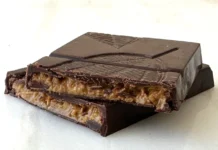The idea came to me when the announcer on the radio said that the next item in the music program would be one of Mozart’s ‘Haydn Quartets,’ i.e., quartets composed by Mozart and dedicated to and inspired by Haydn. I had known about the relationship of mutual admiration between the two composers back in the eighteenth century, but in a flash of insight I suddenly saw the saga of great composers as a kind of marathon or relay race, with the baton being passed from one to the other with a beauty and inevitability that commands respect and admiration and, yes, love.
Of course, there was great music before Johann Sebastian Bach, and some of those composers were even relatives of his, but I’ll start with him, because he towers above them all, and has endured in the most steadfast way. In what follows I’ll probably be displaying my ignorance, but I want to share my insights into – and love of – great music with anyone who happens to read this.
I am grateful to Wikipedia, which makes it so easy to find the dates and correct spellings of all those titans whose music has helped and inspired me on a daily basis. I am also grateful to the music program of the Israel Radio, whether in its current form or its previous incarnation, for providing me with an almost constant companion of beautiful and varied sounds.
Bach (1685-1750) passed the baton on to Haydn, though his contemporary, Handel (1685-1759) also left his mark in the annals of music. Haydn (1732-1809) lived a long and very fruitful musical life, and his logical successor was indeed Mozart (1756-1791), who managed to produce an astounding wealth of great music in his tragically short life.
In the early music of Beethoven (1770-1827) one can hear strains of Mozart, especially in his first two piano concerti, but of course as he developed his style changed. His natural successor, and a great admirer of the man and his music, was Schubert (1797-1828), who was even a pall-bearer at his funeral. Here, too, one can often hear echoes of Beethoven in Schubert’s music, especially his symphonies and piano sonatas. Schubert’s short life was also one of immense creativity, and his music endures as a lasting memorial to him.
The logical successor to Schubert in this genealogy was Brahms (1833-1897), who was doubtless aware of his musical predecessor through another link in the chain, Robert Schumann (1810-1856), who befriended Brahms and knew Schubert’s music. In his role as music critic Schumann was a pivotal figure in the musical world, serving as a link between composers who never actually met in person. He was a notable composer and his music was also influenced by that of his predecessors.
Schumann was personally acquainted with Mendelssohn (1809-1911) and it is one of the ironies of history that it was Mendelssohn who revived interest in the music of Johann Sebastian Bach, which had been forgotten. It was Mendelssohn who conducted the first performance of Bach’s colossal ‘St. Matthew Passion’ after it had been set aside and forgotten for generations.
There are many composers who could qualify as the successor to Mendelssohn and serve as the link between his music and that of my great hero, Mahler, but I would point to Chopin (1810-1849) as the composer who bridges the divide between Mendelssohn’s romantic style and the music of the modern era. The music of Richard Wagner is also considered by cognoscenti to bridge the divide between romantic and contemporary music, but I am not sufficiently familiar with his music to pass an opinion of my own.
In my view, it is Mahler (1860-1911), who stands like a colossus astride the junction between the nineteenth and twentieth centuries. His music bridges the gap between the centuries and their music, showing us both the light and darkness of the contemporary world. In line with the title of his first symphony, he is a true Titan in the world of music.
Republished from San Diego Jewish World


























